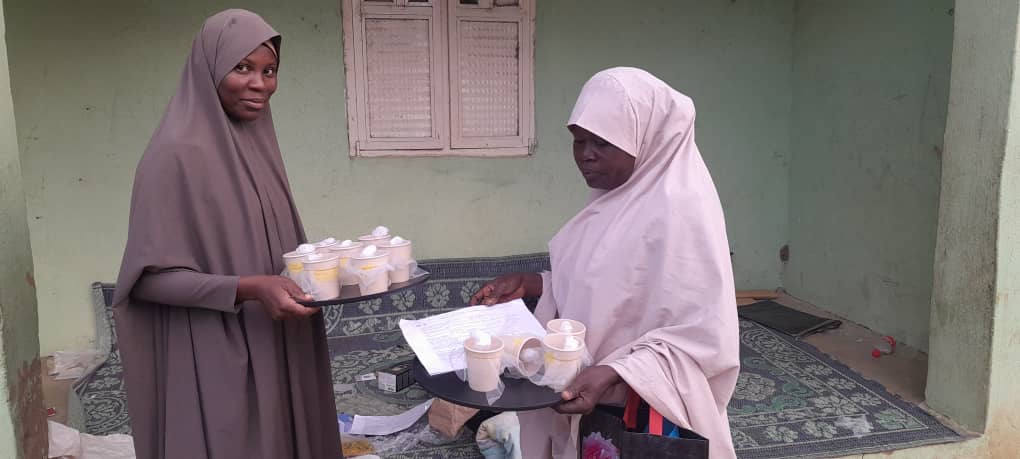Community Health
Championing countries’ efforts to extend the reach and range of their community health services
Strong community health systems are essential for meeting malaria and child health goals and for achieving PMI’s strategic objectives. Community health workers (CHWs) have demonstrated the ability to provide testing and treatment for malaria, diarrhea, pneumonia, and other childhood diseases. They make lifesaving care accessible to millions of people—an equity-based, proven approach for reducing child mortality. CHWs also play an active role in case follow-up and investigation in elimination settings.
PMI has supported countries in their journeys to scale up community case management since its launch, investing millions every year in community health worker training, supervision, and supplies. Despite these investments, major challenges remain in maintaining a well-supported, equipped, and fairly compensated community health workforce.
Coordinating with counterparts within and outside the U.S. government, PMI champions national efforts extend the reach and range of community health services and to finance, professionalize, and institutionalize community health worker programs as an integral part of the formal health system:
- PMI scales up community-based models of care that go further to reach the unreached with malaria testing and treatment. These approaches will vary according to the local context and may include the expansion of malaria community case management beyond young children to include patients of all ages and proactive visits by community health workers to bring testing and treatment to the household.
- PMI catalyzes funder and host-government investment, through both advocacy and provision of direct support of payment for community health workers for the first time, in these essential cadres and work to abolish the pay gap for women working on the frontlines.
- PMI invests in supply chains, protective equipment, training, supervision, and regular communication between community health workers and clinic staff.
- PMI strengthens health management information systems to collect disaggregated community-level data for use by CHWs and at all levels of the health systems.
Stories From the Field
SUCCESS SNAPSHOT: Collecting Mosquitoes to Fight Malaria
A community health worker conducts mosquito collections and teaches her community about preventing malaria in northern Nigeria “I am happy to see that PMI is looking to change towards a community-based approach. It [...]
Empowering Women in the Fight against Malaria: Blessing Ichekul Leading the Way in Nigeria
Community health worker Blessing Ichekula is a beacon of hope in the fight against malaria in her community of Mbayan in central Nigeria. She noticed that the impact of malaria weighed especially heavily on the shoulders of women in her community and was determined to do something about it.
PMI Announces a New Project to Reduce Malaria Cases and Deaths Through Improved Prevention, Testing, and Treatment
The U.S. President’s Malaria Initiative (PMI) announced a new five-year project to further PMI’s global commitment to end malaria. The Reaching Every At-Risk Community and Household with Malaria Services (PMI REACH Malaria) project will work [...]
Data Saves Lives: How Cameroon is Using Data to Make Sure Every Community Receives Essential Health Care
Community health workers are essential to increasing health services for hard to reach populations. In Cameroon, these health workers provide a wide variety of services, including diagnosing and treating malaria. PMI collaborated with the Cameroon Ministry of Health and the National Malaria Control Program to develop an interactive tool to guide the expansion of the community health worker program to make sure more families are reached with life-saving services.



